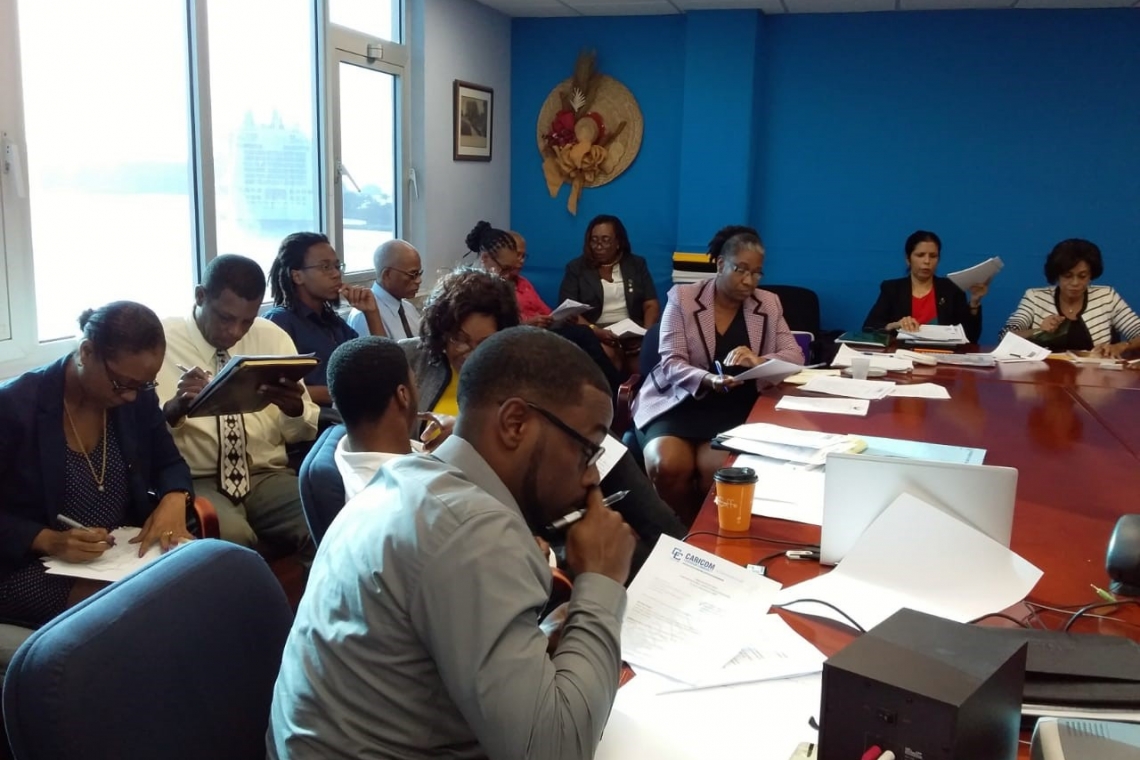One of several groups of stakeholders from the private and not-for profit sectors from St. Lucia. Included in the photo are Deputy-Secretary General of CARICOM Dr. Manorma Soeknandan and St. Lucia’s Ambassador to Caribbean Community CARICOM Elma Gene Isaac
TURKEYEN, GREATER GEORGETOWN, Guyana—Recently St. Lucia was the first CARICOM Member State to convene broad-based national consultations, which are being coordinated by the Caribbean Community (CARICOM) Secretariat across the Caribbean Community, to inform the development of the Results-Focused Community Strategic Plan from 2020.
The consultations brought together a wide range of stakeholders from the public, private, and the not-for-profit sectors, including the Youth, the Media, Labour, Non-Governmental and Civil Society Organisations.
Participants’ engagement and participation in rich discussions demonstrated their deep interest in CARICOM, as they made valuable recommendations and proposals on a range of issues and priorities relating to the regional integration and development agendas.
The national consultations are designed to facilitate the inclusive and active participation of a range of Community Stakeholders. In this regard, the consultations held in St. Lucia benefited from the inputs of two critical National Consultative Working Groups, namely the Inter-Ministerial Consultative Committee (IMCC) and the Business and Labour Advisory Committee (BLAC), where the consultations served as their inaugural meetings.
The consultations began with presentations that provided critical background information on the Resilience Model Community Strategic Plan 2015-2019 and its strategic framework value chain. This was followed by group discussions, where participants discussed and presented the relevant issues for inclusion in the Results-Focused Community Strategic Plan, which will be implemented in Member States.
The Plan will be submitted for the approval of the 41st Regular Meeting of the Conference of Heads of Government of CARICOM in July 2020.
The national consultations are also being leveraged to build awareness and sensitize Community stakeholders about the ‘I am CARICOM’ Communications Campaign, which aims, among other outcomes, to expand understanding of CARICOM, its impact on their lives, its people, geography, institutions, governance structure, policies and plans. In this regard, a number of strategic initiatives have been developed which Member States and Associate Members will incorporate in their respective national ‘I am CARICOM’ sensitization, education and promotional activities.







